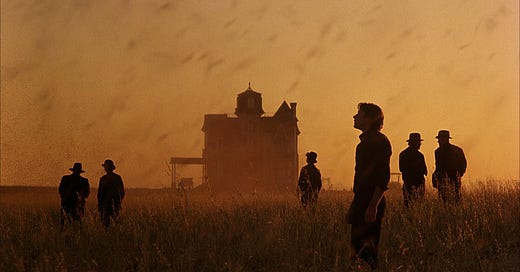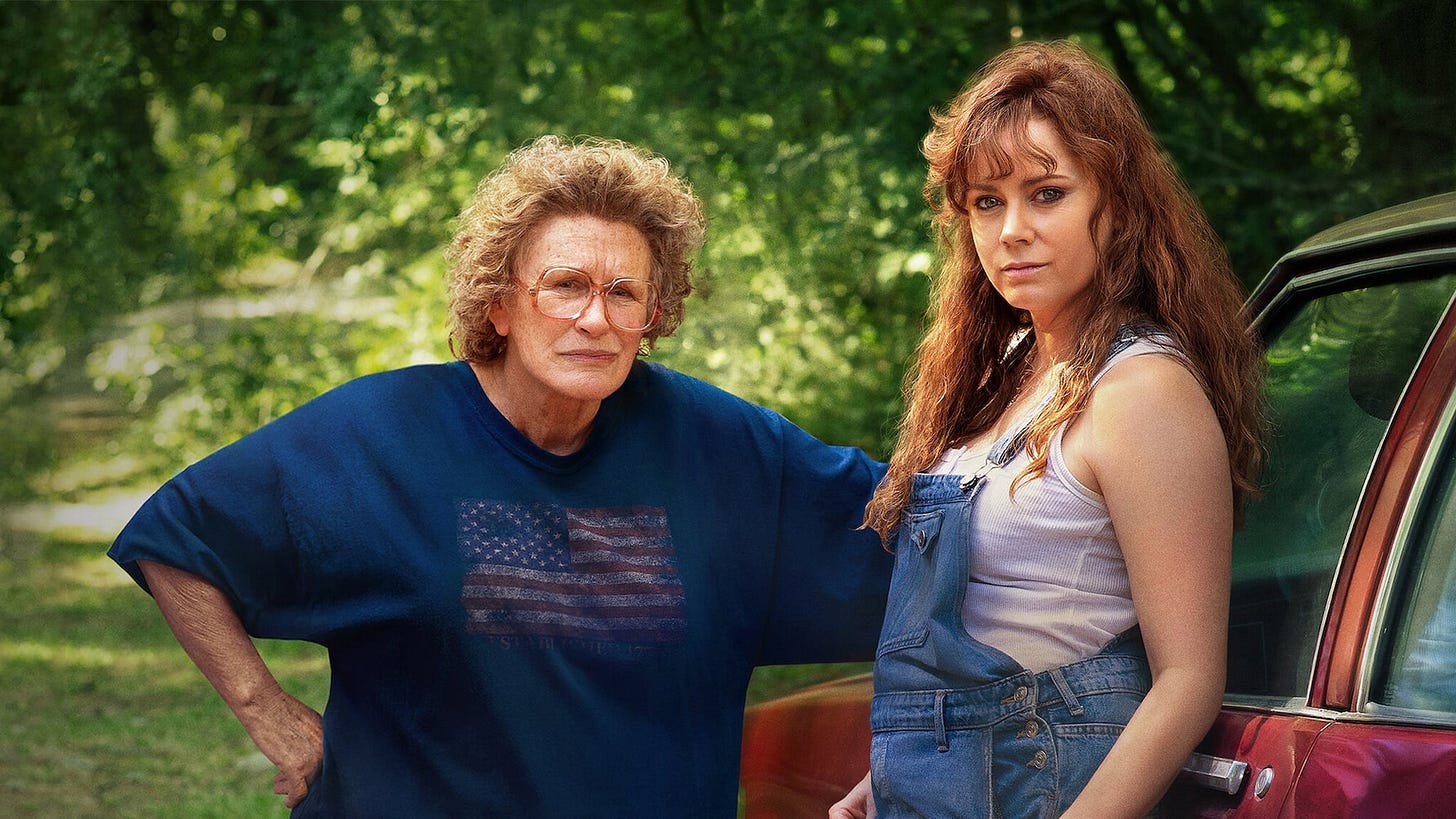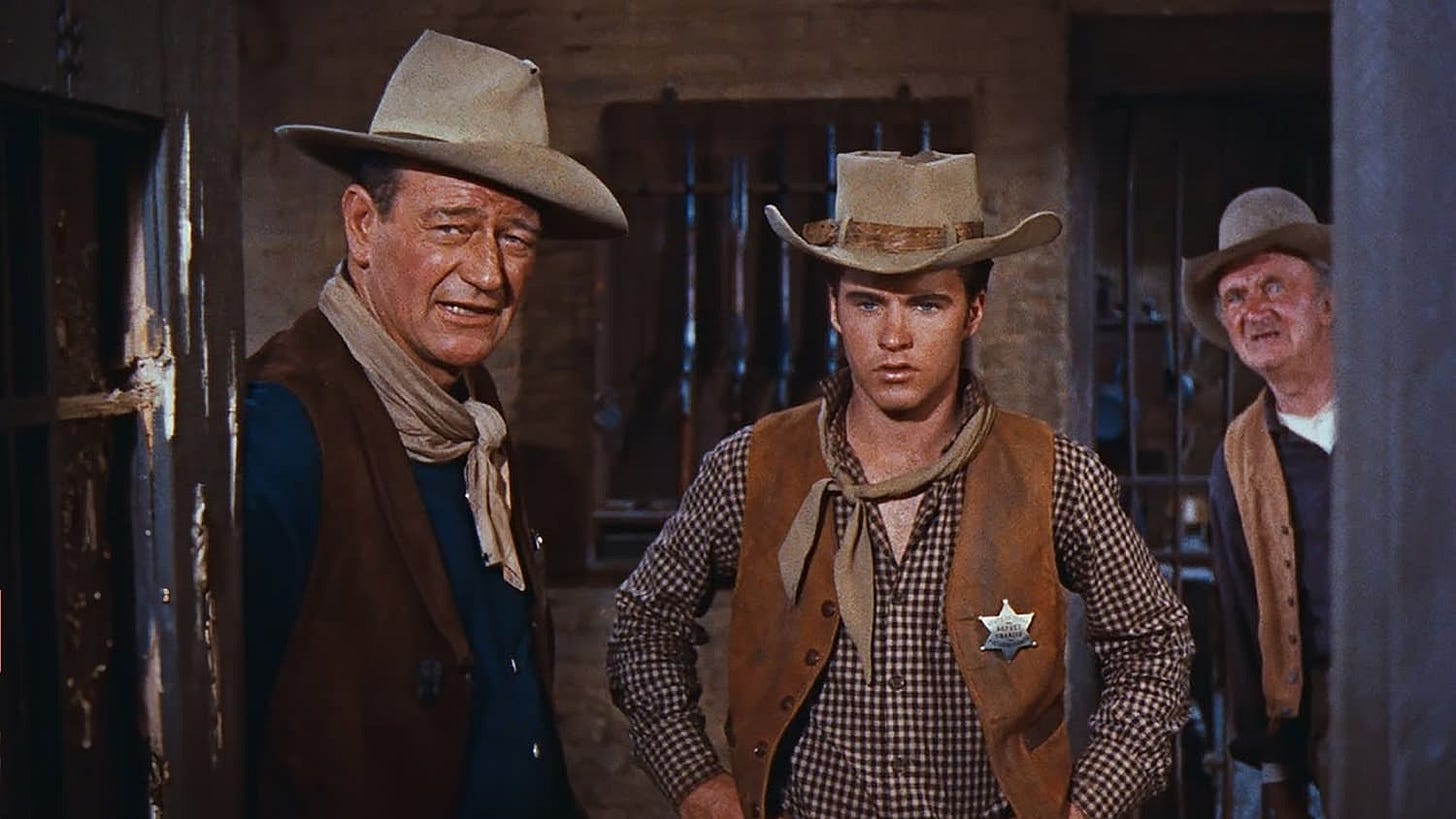Weekly Watches: July 31, 2024
Sharing Our Team's Recent Discoveries: Weekly Watches with 100 Movies Every Catholic Should See
Days of Heaven (1978)
Directed by Terrence Malick.
By
In 1995, word went out to the world that none other than the reclusive director Terrence Malick (who hadn’t made a film in more than 15 years) was returning to filmmaking with an epic war film, an adaptation of James Jones’ 1962 novel The Thin Red Line. Almost immediately, a murderers’ row of actors began asking for roles in it, ranging from Robert De Niro to Robert Duvall to Tom Cruise (none of whom made the cut). Some actors like George Clooney and John Travolta offered to essentially work for nothing just for a bit part. After seeing that film- a great movie- and some of the other works in Malick’s filmography I always figured that Days of Heaven, the second and last film the director had made (after his excellent 1973 debut Badlands) had to have really been something for all these A-list actors to come out and beg for roles like that to be in one of his movies. After buying the Criterion edition of the film a little while back, I finally found the time to watch it and was summarily blown away. Days of Heaven may be the most beautifully shot movie I have ever seen: set in the Texas panhandle, the film breathlessly captures American landscapes in a way that almost makes the Earth seem like an alien planet. Whether it’s gorgeous wide shots of the plains or a close-up time-lapse of a blade of grass growing, every frame truly is a painting in this film. Set in 1916, the efforts taken to painstakingly recreate vehicles and buildings from that time must have been monumental: and the result feels akin to the equally painstaking labors of historical recreation done more recently by Robert Eggers in his films.
The plot of the film, which feels very much spiritually akin to Badlands, follows a young man, Bill (Richard Gere), who flees Chicago with his younger sister (Linda Manz) and girlfriend (Brooke Adams) after he knocks down and kills his boss at the steel mill. The trio find themselves on a wheat farm in Texas under the employ of a wealthy but reclusive farmer (Sam Shepard). The resulting plot is less important than the majesty and awe-inspiring cinematography that is used to portray the smaller details of life in that era, with Malick oftentimes simply shooting according to what the weather was like that day or an off-the-cuff idea he had had moments before- a style he began to carry with him into his later projects (culminating in his 2011 masterpiece, The Tree of Life). Along with one of Ennio Morricone’s most beautiful scores, it all makes for a cinematic experience unlike any other, and is one that I hope to revisit in the near future.
Hillbilly Elegy (2020)
Directed by Ron Howard. Starring Amy Adams and Gabriel Basso.
By
When I asked my husband on a Monday night at 9 pm if he wanted to watch a movie with me, his look of disbelief was priceless, and his “yes” was immediate. These days as I enter the third trimester of pregnancy, it’s rare that I’m up for a feature-length film, especially on a Monday! But on this particular Monday evening, I had been seeing JD Vance’s name everywhere in the news, and I simply had to see the movie based on his memoir.
From the first scene, I found the movie interesting and felt invested and interested in the characters. I cringed at the treatment JD received from everyone in his life, including and especially those closest to him. My mama heart had such a difficult time with the character of his drug-addicted mother. It was hard to watch her mood change on a dime, going from sweet-talking to smacking her son, and her numerous failed attempts to get her act together and provide for her children. The mother’s character was also a critique I had for the whole affair. Although I typically love Amy Adams’ acting and I thought she did a fine job overall, it seemed like the movie wanted the audience to have more conflicted feelings about her than I did. I felt like I was supposed to sympathize with her despite her faults, and see her efforts and good qualities despite her failings, but I didn’t. I knew I was supposed to feel sorry for her and I tried to but I didn’t feel convinced enough by the good parts of her character as it was portrayed. I watched her children love her through everything and work to forgive her, and I found myself wondering at their loyalty.
The movie left me wanting to know more about the real Bev Vance. What did she go through in her youth that influenced her motherhood? The movie showed a few glimpses of an alcoholic father and JD’s sister hints that their mother’s life may have been even harder than the one she gave her children, but I personally wasn’t satisfied with the details provided. I had a feeling that I would have more compassion and understanding for the real-life Bev than the on-screen one. This was confirmed when I watched the footage of the real JD Vance congratulate his mother from the stage of the RNC for 10 years of sobriety, and they panned over to her emotional face. In an instant the look on the face of the real Bev conveyed the love, perseverance, and grace that the Vance family has experienced together for generations, which the movie ultimately successfully portrays.
Rio Bravo (1959)
Directed by Howard Hawks. Starring John Wayne and Dean Martin.
By
What happens when the most famous Western movie star of all time (John Wayne) and the director of some of the best Westerns of all time (Howard Hawks) absolutely despise one of the best Western films of all time (High Noon) and so set out to make a movie that is its antithesis in almost every way?
Well, you get a pretty darn good film, that’s what.
Rio Bravo is Wayne and Hawks’ attempt to set the record straight on how an American western should be made. It has a very similar premise to High Noon: Sherriff John T. Chance (John Wayne) starts the movie basically alone against a potential horde of cowboys because he arrested Joe Burdette, the brother of local strongman Nathan Burdette. However, unlike Will Kane (Gary Cooper) in High Noon, Chance does not have to go around town begging for help before the gang arrives; he instead inspires others to help him even as he continuously turns them down. Kane’s deputy fled his duty out of selfish ambition; John T. Chance drags his deputy Duke (Dean Martin) out of a drunken stupor and inspires him through pure manliness to get sober and become a hero. It’s almost hilarious to see how many things from High Noon Hawks and Wayne turn on their head for Rio Bravo when you start looking for them.
However, simply making a movie out of spite is often the recipe for a bad movie. Luckily, this one was made by true masters of the genre. Rio Bravo masterfully weaves a tension-filled, heroic story from its very opening sequence. It does not quite have the thematic heft of High Noon, which wove together complex themes of conscience, duty, fear, and love, but it does go in hard on duty, heroism, and good ol’ fashioned American manliness. Dean Martin’s Duke is the absolute standout here as the drunk who becomes Sherriff Chance’s trusted right hand man. His performance through the struggle to get sober is gripping and delightful as he transforms from a mousey beggar to a confident and charismatic cowboy. The ambushes are dastardly, the fights well-executed, the songs put a smile on my face, and the romance is…well, probably the weakest part of the film, but still fun in my opinion. If High Noon attempted to transcend its genre, Rio Bravo thoroughly embodies it and makes for a rollicking good time. It holds a special place in my heart as my grandpa’s favorite film, and I think it’ll delight any fan of great American Westerns.
X-Men (2000)
Directed by Bryan Singer. Starring Patrick Stewart, Ian McKellen and Hugh Jackman.
By
With all the hype surrounding Deadpool and Wolverine’s release this past weekend, I wanted to revisit the film that started it all. 20th Century Fox was the third movie studio to theatrically release a film based on a Marvel comic series and can largely be given credit for the widespread popularity of superhero films in the coming decades (an impressive turnaround from 1986’s Howard the Duck, which had the opposite effect). The film marks the first appearance of Hugh Jackman’s iconic Wolverine, and features an all-star cast including Patrick Stewart, Ian McKellen, James Marsden, and Halle Berry.
As a full disclosure, I love the X-Men as a superhero team and whenever the TV show came on as a kid or Wolverine appeared alongside Spider-Man, I lost my mind at how cool these guys were. The family dynamic and diverse powers made them one of Marvel’s best-selling superhero teams for a reason, and in 2000 (before the popularity of the Avengers and the MCU) they were almost definitely their most popular (although a case could be made for the Fantastic Four, who did not receive as positive a transition to the big screen). The movie does a great job introducing each of the characters and the torn world that the X-Men live in, as well as giving the necessary dues to their rival group, the Brotherhood of Mutants. The shots and cinematography range from the elaborate X-Mansion to the wilderness of Canada to the inside of the Statue of Liberty, always providing eye-catching scenery. There are plenty of great fight scenes and although the special effects don’t hold up nearly as well as other early 2000’s films, are still certainly well done for the time. A lot can be said about why this movie works and a lot can be said about why it doesn’t. For example, the powerhouse actors of Sir Patrick Stewart and Sir Ian McKellen could certainly have had a bit more of the limelight, with basically all the plot-driven scenes being given to Hugh Jackman and characters interacting with him. However, anyone who watches the film would agree that his role as the rough, animal-like loner is amazing and seeing as the primary character arc is Wolverine opening to his new family, his role as the protagonist makes sense. Overall, X-Men is a classic that launched an entire genre into the spotlight (as well as the career of a certain Aussie), filled with great characters and a unique plot that still remains faithful to the source material. Certainly not the most fulfilling recommendation, the film is a great kick-back watch and is a must see for any fan of superhero movies.














Days of Heaven with its haunting beauty rightfully continues to find new fans.